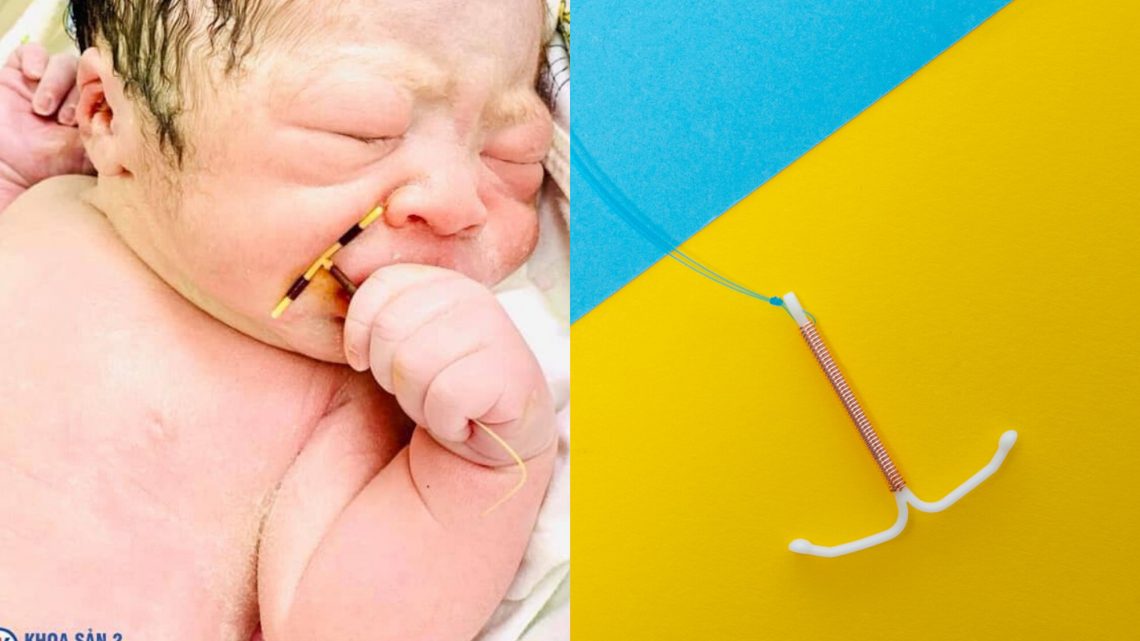
A Baby Was Born in Vietnam, His Mother’s IUD in Tow
July 14, 2020A baby boy in Vietnam has gotten more than the requisite share of attention accorded to newborns after photos of him holding his mother’s contraceptive intrauterine device (IUD) went viral on social media.
According to local news reports, the IUD—a device considered among the most effective forms of birth control available—came out from the mother’s body when the baby was born. It was initially believed that the baby came out of the womb holding the IUD, but Vietnamese reports clarified that medical staff had placed it in the baby's hand for the photo op.
Dr. Tran Viet Phuong captured the moment and posted the photos of the baby boy holding a black and yellow contraceptive coil on the Facebook page of the Hai Phong International Hospital, in Hai Phong, on Tuesday, June 30. They have since been shared some 4,400 times.
“After delivery, I thought him holding the device was interesting, so I took a picture. I never thought it would receive so much attention,” Dr. Phuong told local media.
According to Yahoo News, the baby’s 34-year-old mother has two other children, and had gotten the IUD two years ago.
IUDs are T-shaped birth control devices that are inserted into the uterus. According to Planned Parenthood, IUDs are more than 99 percent effective in preventing pregnancies because there is virtually no chance of people misusing or forgetting them, unlike condoms or birth control pills.
Still, Singaporean obstetrician and gynecologist Dr. Steven Teo said it isn’t unheard-of for conception to occur in spite of an IUD.
Teo explained that IUDs are designed to sit high up in the womb cavity, where pregnancies occur, and work by disabling the progress of sperm towards the fallopian tubes, where they can fertilize the egg. Conception despite an IUD usually occurs when the device is displaced and moves lower in the womb cavity.
He added this could be caused by various factors, including sub-optimal insertion and heavy menstrual flow, and that such IUD displacements are not rare.
“Most gynecologists would have seen a few cases during their career,” he said.
In these cases, he continued, the woman can either choose to terminate the pregnancy or, should she choose to go through with it, have the IUD removed to avoid complications like infections, the premature rupture of the water bag, and bleeding, though the chances of these happening are not high.
To avoid displacement in the first place, Teo advised people to undergo a scan immediately after insertion to ensure that the device is seated properly.
“Also go for regular annual checks to confirm the IUD [is] still in a favorable position to be effective in preventing pregnancy,” he said.
Follow Miran on Instagram.


